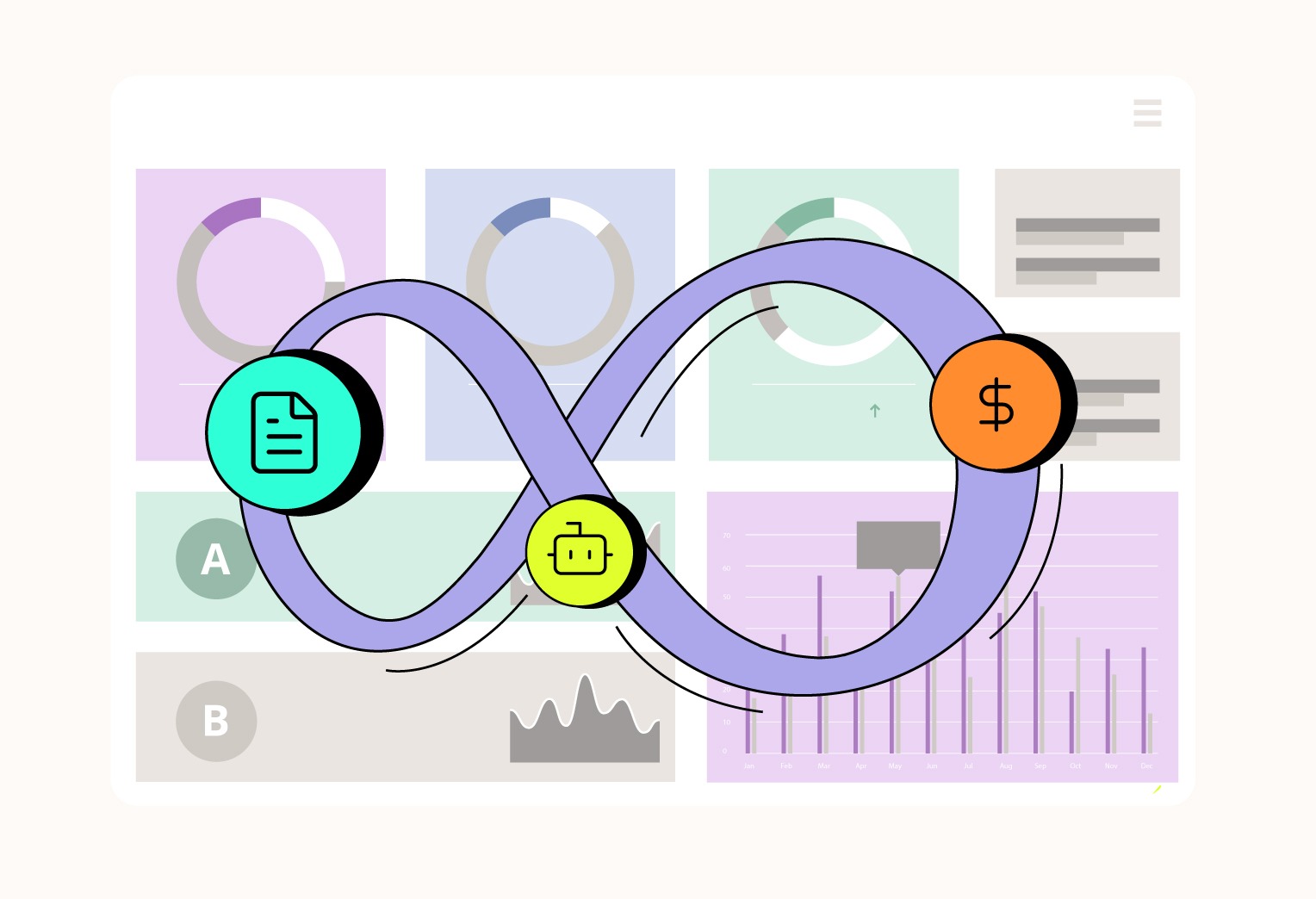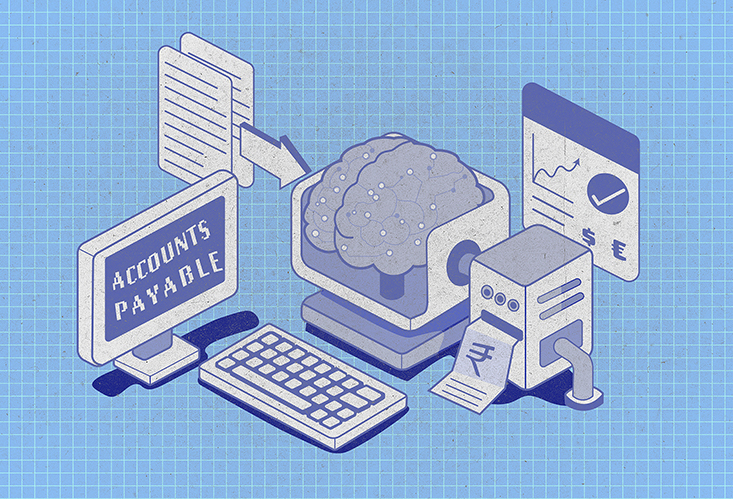D2C businesses are gaining popularity due to customers’ growing need for more personalized products and services. This includes expectations around inclusive designs, costing, and offers on products they buy. In 2023, direct-to-consumer (D2C) sales by established brands in the United States exceeded 134 billion US dollars, and market experts predict this will grow to $186 billion by 2025.
As the industry grows, businesses face many challenges, especially in financial management. Handling finances gets more complex, and companies need automation to keep their accounts error-free, eliminate unnecessary manual tasks, and avoid inefficient spending. One major challenge is account reconciliation. For D2C businesses, an accounts reconciliation automation tool is essential to manage these issues and ensure accurate and fair accounts for better decision-making.
In this blog, we will uncover insights into the growth of the D2C business model, the rising challenges for financial operations, and why should the finance teams consider reconciliation automation in D2C.
Why D2C is Gaining Popularity?
The Direct-to-Consumer (D2C) business model refers to a strategy where companies sell their products directly to customers, bypassing traditional intermediaries like retailers, wholesalers, or distributors.
The D2C model offers some pretty compelling advantages, and companies like Nike, L'Oréal, and Mamaearth are some popular brands. This model allows brands to control the entire customer experience, from product creation to final delivery, enabling them to build stronger, more personalized customer relationships. Here’s why more businesses are jumping on the D2C bandwagon:
- More Control Over Pricing and Higher Margins: Without middlemen, companies can set their prices and keep more of the profits. This means higher margins and better control over their bottom line.
- Building Stronger Customer Relationships: You get to tell your story directly to your customers. This builds a loyal customer base that’s more engaged and invested in the brand.
- Creative Control Over Packaging: When you control the entire sales process, you will also decide how your products are packaged and presented.
- More Room for Innovation: You can experiment with new products and ideas. You can test new concepts more quickly and respond to market trends faster.
- Better Customer Data: Selling directly means you get firsthand data on customer preferences and buying habits. This information is gold for tailoring marketing strategies and improving products.
D2C Finance Operations and its Challenges
While the D2C model has a lot going for it, it’s not without its challenges. Running a D2C business means you will have to manage everything yourself, from production to customer service. The two major challenges are operational complexities like handling logistics, inventory management, shipping, and customer service. Especially if your business is a start-up, it could be extremely demanding to get to the needs and manage small teams for various functions. While juggling this is one side of the coin, financial management is another. Keeping track of pricing, customer payments, taxes, and revenue streams can be overwhelming due to:
- High transaction volumes
- Multiple payment channels
- Data inconsistency and disintegration
- Handling returns and refunds
- Discounts, promotions, and loyalty programs
These challenges can lead to overwhelmed finance teams and inaccuracies in financial statements. Manual reconciliation processes are time-consuming and error-prone, which can result in compliance issues. This is where automation comes into play.
Why Should D2C Businesses Consider Account Reconciliation Automation?
For D2C businesses, managing finances efficiently is crucial to maintaining healthy cash flow, ensuring accurate financial reporting, and improving overall finance operations. As these businesses scale and transactions multiply, the reconciliation process—ensuring that financial records match across systems—can become increasingly complex and time-consuming. Account reconciliation automation can not only streamlines this process but also reduces the risk of errors, improves accuracy, and frees up valuable resources, allowing D2C companies to focus on what matters most: delivering exceptional products and services to their customers.
Benefits of Account Reconciliation Automation for D2C
Efficiency and Time Savings
Instead of spending countless hours manually matching transactions, automation speeds up the process significantly. This means your finance team can focus on more strategic tasks rather than getting bogged down in the nitty-gritty details. Plus, with less manual work, there's less chance of burnout among your staff, making for a happier, more productive team. Account reconciliation automation also helps consolidate data from various systems like spreadsheets/ ERP, eliminating the need for manual data collection across different channels.
Improved Accuracy and Reduced Errors
Manual reconciliation is prone to human errors that can lead to discrepancies. With automation, you can minimize these errors and ensure your data is accurate and reliable. Automated systems are designed to catch discrepancies that might slip through the gaps in a manual process. This accuracy is necessary for building trust with stakeholders and making informed business decisions.
Enhanced Visibility and Financial Control
Automation provides real-time insights into financial data, giving you a clearer picture of financial health. With automated reconciliation, you can generate detailed reports quickly, making it easier to monitor cash flow, track expenses, and identify trends. This helps you stay on top of your finances.
Helps you scale easily
As you grow, the volume of transactions will increase, especially during peak seasons. Automation is inherently scalable, allowing you to handle these transaction spikes without a hitch. This scalability ensures you can grow without disrupting your business activities.
Improved Compliance and Audit Readiness
Staying compliant with financial regulations is crucial, and automated reconciliation makes this easier. Automated systems are designed to keep accurate records, making it simpler to meet regulatory requirements and prepare for audits. This not only helps avoid potential fines and penalties but also fosters a transparent relationship with regulators and auditors.
Implementing Reconciliation Automation in D2C
Reconciling accounts for a D2C business can become increasingly complex as the business grows and automation is essential to ensure a smooth and streamlined process. Choose a tool that is user-friendly, adaptable to the evolving needs of your business, and capable of generating comprehensive reports and analysis for better decision-making. Additionally, it is crucial to train your team and staff to understand and navigate the tool effectively, acknowledging and addressing the learning curve involved.
Unlock the Benefits of Reconciliation Automation for Your D2C Business.
Talk to Us!




.jpeg)

